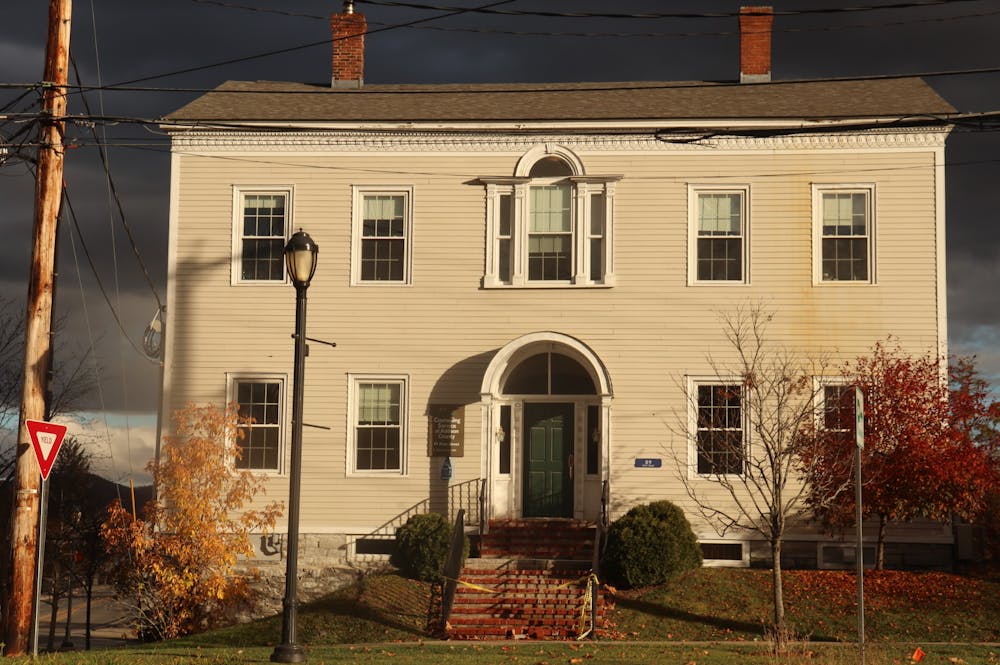Counseling Service of Addison County (CSAC) raised its pay rate this past May in an attempt to recruit and retain a greater number of employees to the organization. In April, they spent about $1.7 million to raise the wages, funded mostly by an 8% increase in Medicaid rates passed by the Vermont state legislature. CSAC was especially struggling with employment within the developmental services, the emergency response team and the psychiatry department.
CSAC, in partnership with the college, also added a designated psychiatrist who sees Middlebury students once a week.
“We’re holding our own,” Executive Director of CSAC Rachel Lee Cummings said. “We’ve been working to become a trauma-healing organization and really taking a look at the systems that support healthy workplaces, trying to grow our inclusion and decision making, increase our communication and really pay attention to the right things that keeps our staff healthy and balanced and wanting to stay and be engaged and active within CSAC.”
Cummings said that their vacancy rate has decreased from 15% to 10% since the raised pay rate.
The most notable additions have occurred on the emergency response team, which is now almost fully staffed by a combination of new hires and existing employees picking up per diem shifts. Prior to the raised pay rate, she said, the 24/7 emergency team was staffed by only two employees.
In addition, they have hired more Adult Stabilization Program (ASP) case managers on their mental health side — a position which formerly had an almost 100% vacancy rate — which invites clients to engage in a “strengths-based and solution-focused program that supports clients in solving problems and developing realistic, achievable goals,” according to the CSAC website.
Cummings also noted that fewer employees have left the agency in this past quarter than the previous quarter prior to the pay increase. She claims that while people still leave the agency for other reasons, insufficient pay is no longer one of those reasons.
Cummings cited a plethora of other reasons for why people leave “voluntarily and involuntarily,” including a lack of childcare options in Addison County, a state-wide housing crisis, the stress of the job or a desire for a career change. She said that on multiple occasions in the past few months, potential hires had to turn down the job on account of not being able to find housing in Addison County or commit to a full-time job with young children at home and inconsistent childcare options nearby.
They have also continued to struggle hiring staff in psychiatry, school-based services and developmental services. Cummings pointed out that there is a highly competitive employment landscape for those who have experience in mental health and behavioral health services.
“There’s just not enough people in the field to cover all of the open positions, both in Addison County and across the state,” Cummings said. “Regardless of the setting, whether it’s primary care or community mental health, there’s just not enough people. We really need to take a look at physician satisfaction and find ways to recruit more students into that field.”
Moreover, Covid-19 has continued to cause problems for CSAC’s already thinly-stretched workforce.
At their residential home last month, a Covid-19 outbreak spread to all seven residential home assistants, in turn spreading to the rest of the staff and all of the residents. The staff who were all sick with Covid-19 continued to come into work because CSAC had no other options.
“They just had to keep helping people — making meals, keeping people safe, getting activities going — making sure that our residence was still running,” Cummings said. “Covid-19 has just been really, really stressful.”
Furthermore, Cummings has noticed an ongoing upward trend in need and in the intensity of service clients are requiring since the pandemic, specifically in their Youth and Family department where they have seen a 68% increase in uptake.
“It makes sense that people are struggling,” Cummings said. “This has been a pretty intense and awful couple of years. It’s really highlighted the fragility of our support systems and our social safety nets, and we’re feeling it.”
Cummings rejects the idea that this is a result of a mental health crisis, but rather a “political crisis.” In the 2022 midterm election, Cummings is paying special attention to the legislature, which controls the allotment of Medicaid that currently makes up 80% of their funding.
“We are looking for legislators who understand the scope of how much people are struggling and are willing to put money behind words and promises to help support well communities,” Cumming said, stressing the need for affordable housing, accessible childcare and strong social safety nets.
In addition to the raised pay rate, CSAC has implemented a new branch of their psychiatry department fully devoted to responding to the needs of Middlebury College students. In partnership with Middlebury College, Dr. Brittany F. Crowley M.D., who primarily serves in CSAC’s child psychiatry department, has been hired by the college to offer her services once a week for students seeking psychiatric care.
“By having Dr. Crowley on site physically and collaboratively with Middlebury’s medical and mental health staff, we will be able to support students better, quicker and more often,” Cummings said. “We’re really impressed with the partnership and how creative and supportive the college has been in thinking how to better support students.”
Cummings noted that there are only 30 child psychiatrists in the state, and as a result, service can be incredibly expensive. Middlebury’s support thus allows CSAC to allocate their resources and services elsewhere while providing Middlebury students with more accessible psychiatric care.
In the upcoming months, CSAC is preparing to kickstart a couple of new programs intended to increase client accessibility, including a same-day access service for immediate support and a mental health urgent care initiative, modeled off the principles of the Living Room model, thanks to an earmark provided by Vermont Sen. Bernie Sanders. Both programs are intended to provide other immediate options to the emergency team if their problems are less severe and more suitable to non-emergency services.
“We’re trying to find ways across the state to broaden the continuity of crisis services and reduce the pressures of people heading to the emergency department to get immediate care,” Cummings said.
Cummings said that CSAC will continue to realize the effects of the wage increase on their ability to hire and retain employees and that statewide trends will continue to affect their ability to do so.
“We feel like we’ve made some movement regarding pay,” Cummings said. “But we still need to take a look at physician satisfaction, and find ways to recruit more students into that field.”

Sam Lipin '23.5 returns this fall for his third semester as an editor for the Sports section. A Classics major with an Italian minor, Sam worked as a reporting intern this summer at the Addison Independent. He has hosted four radio shows through WRMC and tells his friends he plays rugby though he has not been to a practice in a year and a half.



